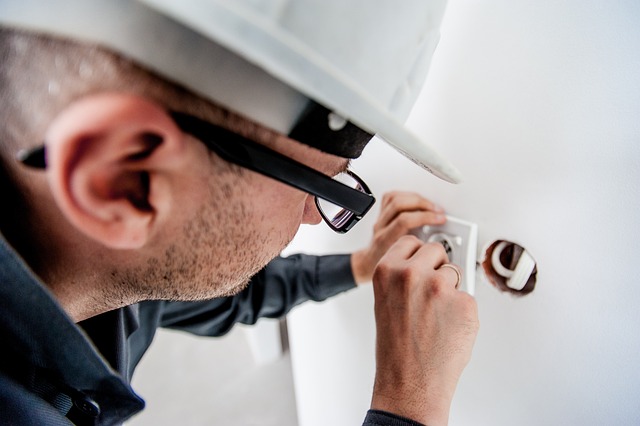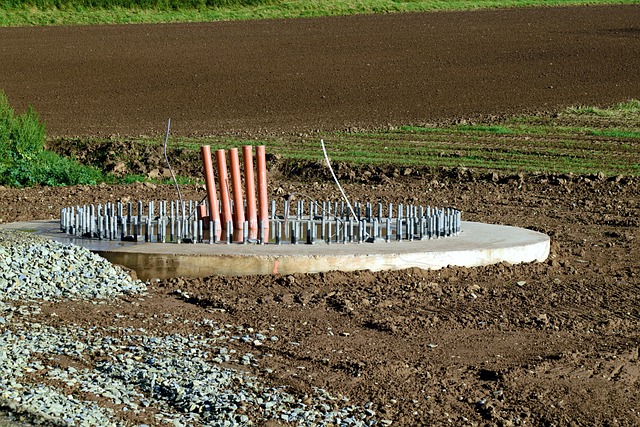Commercial foundation inspections are thorough assessments that go beyond residential standards, focusing on the unique structural challenges of commercial buildings. Skilled inspectors use advanced tools to evaluate cracks, gaps, moisture intrusion, and supporting elements, enabling stakeholders to make informed decisions about maintenance, renovation, or restructuring. Regular inspections are vital for early problem detection, preventing costly repairs, ensuring safety, and maximizing investment returns by facilitating timely Commercial Foundation Repair. Common issues include concrete slab cracks, uneven floors, and settlement discrepancies, which can be addressed to promote the long-term stability and success of commercial operations.
Commercial foundation inspection is a critical aspect of maintaining and safeguarding business assets. Regular assessments are essential to identifying potential issues early, preventing costly repairs, and ensuring uninterrupted operations. This article delves into the fundamentals of commercial foundation inspections, highlighting the significance for property owners and managers. We explore key components, common issues, and effective strategies for addressing post-inspection concerns, empowering you to make informed decisions regarding your commercial foundation repair needs.
Understanding Commercial Foundation Inspection: The Basics

Commercial foundation inspection is a critical process that involves a thorough evaluation of a building’s structural integrity, with a specific focus on the foundation. This comprehensive assessment goes beyond standard residential inspections and delves into the complexities unique to commercial structures. The primary goal is to identify any potential issues or signs of damage that could impact the stability and longevity of the property, ultimately guiding decisions regarding Commercial Foundation Repair if needed.
Inspectors skilled in this domain examine various aspects such as foundation cracks, settlement gaps, moisture intrusion, and the overall condition of the structural elements supporting the building. They use advanced tools and techniques to ensure a detailed analysis, enabling property owners and managers to make informed choices regarding maintenance, renovation, or restructuring. Early detection of foundation problems is key in mitigating costly repairs and ensuring the safety and durability of commercial spaces.
Why Commercial Properties Need Regular Foundation Assessments

Commercial properties, much like their residential counterparts, require regular maintenance and care, especially when it comes to foundational integrity. The demands placed on commercial buildings—from heavy loads, constant foot traffic, and varying environmental conditions—can lead to subtle yet significant structural issues over time. Regular foundation assessments are crucial for identifying these problems early on, preventing more severe and costly repairs down the line, and ensuring the longevity of the property.
Delays in addressing foundation issues can result in widespread damage, affecting not just the building’s structural stability but also its overall value and safety. Commercial Foundation Repair becomes a complex and expensive endeavor when major problems are left unchecked. Proactive assessment allows for timely intervention, minimizing disruptions to business operations and maximizing the return on investment in commercial real estate.
Key Components of a Comprehensive Foundation Inspection

A comprehensive Commercial Foundation Inspection goes beyond a surface-level assessment. It involves meticulous scrutiny of several critical components essential for determining the structural integrity of a commercial building’s foundation. These include examining the foundation’s overall condition, looking for signs of cracks or leaks that could indicate instability, and assessing the quality of construction materials used.
During the inspection process, professionals also evaluate the stability of the soil beneath the foundation, check for proper drainage to prevent water damage, and inspect the surrounding area for any signs of settling or movement. Identifying potential issues early through these thorough checks is crucial for preventing costly Commercial Foundation Repair down the line.
Common Issues Found During Commercial Foundation Evaluations

During commercial foundation evaluations, several common issues are often identified, which can significantly impact structural integrity and stability. These problems may include cracks in concrete slabs, uneven floors, and settlement discrepancies. Cracks, ranging from hairline to larger fissures, can signal underlying issues like soil instability, improper construction, or shifting weight distribution above the structure.
Unlevel floors are another red flag, indicating potential problems with footing support or differential settling. This issue is especially critical in commercial spaces where precise equipment placement and load-bearing capabilities are essential. Commercial foundation repair often involves addressing these concerns to ensure the safety and longevity of the building, preventing further damage and costly business interruptions.
The Impact of Foundation Problems on Business Operations

Foundation problems in commercial buildings can have a significant impact on day-to-day operations and overall business success. Even minor issues like cracks or unevenness can disrupt normal activities, causing inconvenience and potential safety hazards. As businesses rely heavily on their premises for storage, manufacturing, or customer service, any structural defects may lead to downtime, which directly affects productivity and revenue.
These problems could result in costly repairs, temporary relocation, or even permanent closure if left unattended. Prompt identification through regular commercial foundation inspections is crucial. By addressing foundation issues early, businesses can mitigate risks, ensure a safe working environment, and maintain their operations without interruption, ultimately promoting long-term success and stability.
Effective Strategies for Addressing Post-Inspection Concerns

After a commercial foundation inspection, addressing concerns promptly is key to prevent further damage and costly repairs in the future. One effective strategy is to create a detailed report outlining all findings, including potential issues and recommended actions for Commercial Foundation Repair. This transparency helps clients understand the scope of work required.
Engaging in open communication is another vital step. Regularly update clients on inspection results, repair processes, and timelines. This proactive approach builds trust and ensures they are well-informed about their property’s health. Additionally, providing maintenance tips can help business owners proactively care for their structures, reducing the likelihood of future foundation-related problems.
